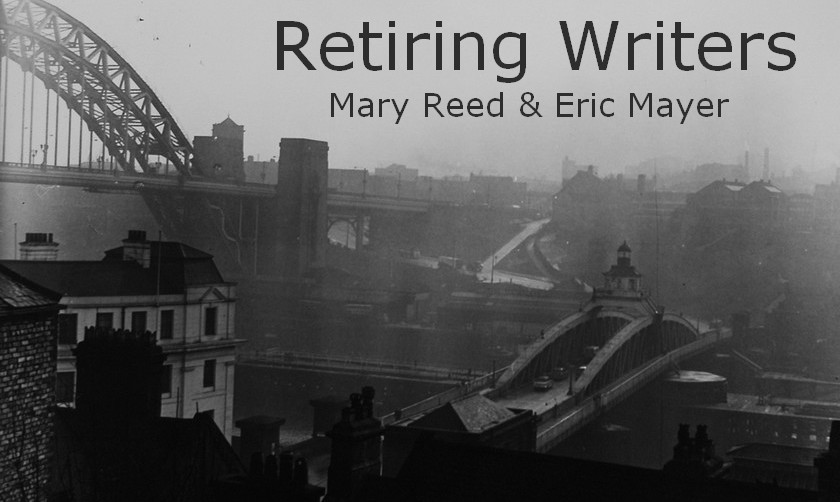During the last couple of weeks my eye was drawn to three stories with a common though unlikely element linking crime, WWII, and funeral catering.
Tea.
Last month I read about a scam whereby victims were tricked into purchasing Scottish-grown tea. The culprit made over £500,000 by selling foreign-grown tea under such names as Highland Green and Scottish Antlers plus other blends supposedly grown on the Wee Tea Plantation, located on a former sheep farm in Perthshire. As a sideline he also sold tea plants said to have been grown in Scotland to entrepreneurs who fancied trying their hands at growing materials for the cup that cheers but does not inebriate.
Scotland's Food Crime Unit brought him to justice last month. I'm now wondering if before too long we'll see an investigator from a similar unit as the protagonist in a mystery series. After all, with the current raging popularity of mysteries involving shops offering various kinds of comestibles it would seem a natural pairing, like a cuppa with a ginger bikky to dunk in it, Especially if it turned out the edibles were poisoned. We could call it Tart Noir.
Not long afterwards I stumbled over an unusual story from 1941. In occupied Holland RAF planes arrived one night and dropped hundreds of miniature parachutes carrying unexpected but most welcome cargoes -- small bags of tea. 75,000 of them, each containing an ounce of tea, a gift to the populace from unoccupied plantations in the Dutch East Indies. The message on their labels: "The Netherlands will rise again. Greetings from the free Dutch East Indies. Have courage." *
The third leaf of my tea-related trio of articles is my discovery of the what appears to be the newish custom -- at least to me -- of giving teabags in decorative envelopes to mourners at post-funeral gatherings. The minions of the Maywrite Research Bureau tell me traditional blends such as Earl Grey or Orange Pekoe are popular choices for these occasions, while special blends or herbal teas are also available if preferred. We'd have liked to include such remembrances for the funeral tea in Ruined Stones, had such offerings been practised at the time. However, even if it had, it would have been difficult to mention in that particular chapter due to wartime rationing. The novel is set in 1941 and the adult allowance per week at the time was two ounces, reckoned to be enough for 30 cuppas.
Speaking as a long time javaphile I was happy to subsequently learn that coffee, though sometimes difficult to obtain, was one of the few items not rationed in the UK at one time or another during the war.
* Photo of a parachute with a (presumably empty) teabag at https://x.com/PotteriesMuseum/status/962667786999910401

No comments:
Post a Comment